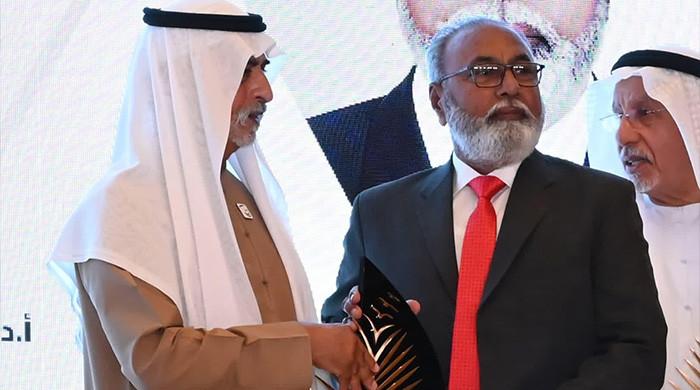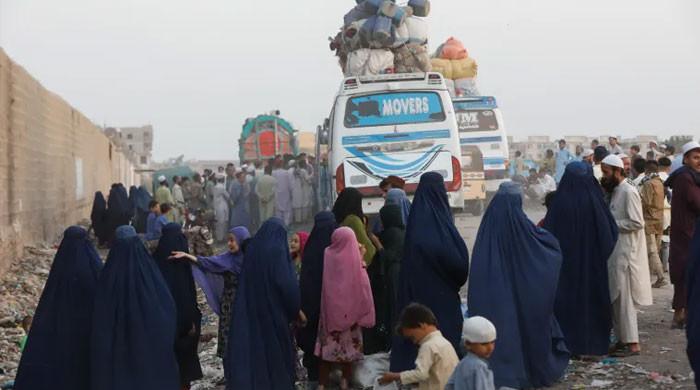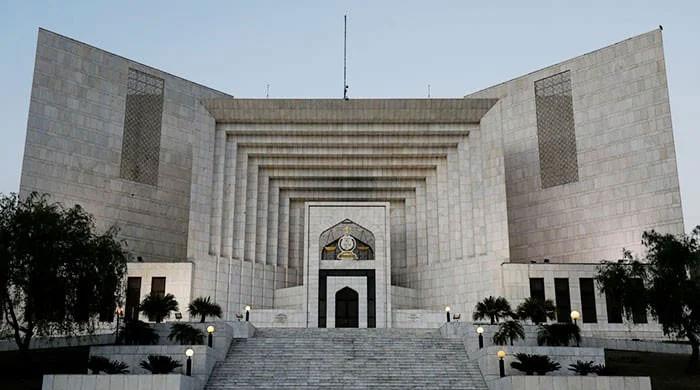How will Pakistan's major political players tackle healthcare?
The three major political parties, PML-N, PPP, and PTI have all come up with detailed proposals for the improvement of health sector in Pakistan
July 24, 2018
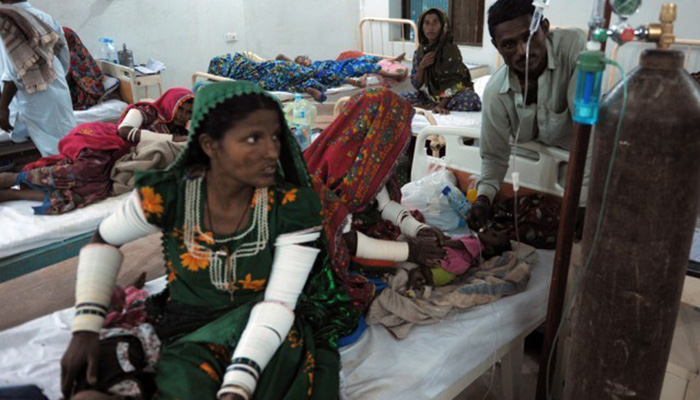
There are few who may not know the political slogan for each party for the 2018 elections. But do know where they stand on an issue that affects every Pakistani on the most basic level: healthcare.
Though Pakistan’s health budget marked an encouraging 80 per cent increase in 2017-18 to Rs54 billion from 2016-17’s Rs30 billion, it is still a mere one per cent of the country’s GDP.
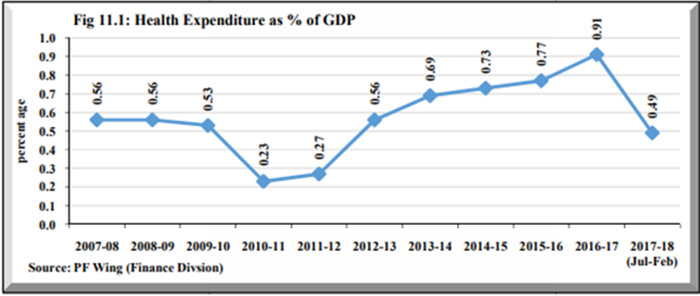
Successive governments have failed to prioritise healthcare and this is obvious by taking a look at the country’s health indicators.
Polio still continues to remain one of the biggest health concerns. Infant mortality rate is higher and life expectancy for women lower in Pakistan, as compared to the region. Lack of health facilities in rural regions, coupled with a high patient to doctor ratio in urban regions, only aggravate the health problems in the country. Brain drain is another factor adding to the pressures on this sector.
The three major political parties, Pakistan Muslim League – Nawaz, Pakistan Peoples’ Party, and Pakistan Tehreek-e-Insaf have all come up with detailed proposals for the improvement of health sector in Pakistan, but they have not included any proposals on how they plan to tackle the problems of refusal to vaccinations, difficulties on accessibility in remote areas, or the affordability issues prevalent in the country.
Here is what they did propose:
PML-N:
They plan to eradicate polio, protect against preventable diseases, and increase the number of skilled birth attendants, expand immunisation coverage, and also implement a nutrition strategy focused on first 1,000 days interventions to reduce stunting and malnutrition.
PML-N’s manifesto also mentions the plans to expand PM’s National Health Program to “100% districts.” Scaling up for Punjab’s rural ambulances system for pregnant women is also on the cards as is the building and up-gradation of hospitals to bring the ‘bed-population’ ratio comparable to regional benchmarks.
Upgrading the Disease Surveillance System and set standards grounded in clinical protocols is also on their agenda. They also stated plans in their manifesto to conduct a National Health Survey every three years.
On the expenditure front, PMLN’s manifesto said that they will ensure an annual 20 per cent increase in public health expenditure, making it two per cent of the GDP by 2023. They also plan to control population growth rate down to 1.6 per cent in 2023, from the current level of 2.4 per cent.
PTI:
This manifesto states plans for up-scaling of Sehat Insaf Card Program with focus on the underprivileged. The party also plans to ensure that the citizens have coverage for a defined package of services insured through policy interventions such as public insurance for the poor, mandatory employee insurance among others.
Doubling the size of Lady Health Worker (LHW) programme as well as efforts to increase vaccination coverage; especially in Sindh and Balochistan, is also on PTI’s written agenda.
Establishing training institutes nationwide for nurses and paramedical staff, investments in a referral system at BHU (basic health unit) level, and ensuring availability of diagnostic facilities, preventive and curative treatment for communicable diseases such as hepatitis, tuberculosis and HIV, are also area’s PTI promises to focus on in through their manifesto.
PPP:
The People’s Party has come up with a three-part strategy to deal with Pakistan’s healthcare issues. In its manifesto, PPP says it will expand services, link family health services to a unified individual-centred system, and join in the Mother and Child Support Program – ELAJ.
PPP plans to strengthen the provincial health commission with a semi-autonomous status, allow for health data management at union council and district levels, train district health officers in health services delivery and management, and ensure paperless administration and telehealth systems.
PPP’s linking-up healthcare plans will require the recruitment of an additional 25,000 doctors who will each manage an average caseload of around 1,000 households, according to the manifesto. This would mean that an average of 13 to 14 doctors would be employed per day. It makes up an average of 13-14 doctors employed per day.
The manifesto also says that Health Card will entitle individuals to free-of-cost or subsidised healthcare at public sector facilities. The Family Health Card may be linked with an upgraded BISP database to target concessions to the most under-privileged people, and for implementing a scale of payments.
The proposed points for Mother and Child support programme include maternal health, child nutrition, and reproductive health/family planning counselling and early childhood development among other things. The manifesto also mentions that this programme will provide cash incentives to mothers (and families) to make pro-health, pro-nutrition, pro- learning, and pro-gender equality choices from the time of conception till a child reaches school-going age (5 years).
What experts say?
Asif Aslam Farukkhi, who teaches healthcare at Habib University refused to comment on the political side of the manifestos but says, “Because I am a healthcare professional, I am keenly looking at the proposals by several political parties, and many of the loud claims being made are a continuation of policies already in practice, aiming for objectives that should have been achieved already”.
Farukkhi says polio eradication, reductions in maternal mortality, and improvement in child malnutrition are goals, “that should have been accomplished yesterday”.
Adding that irrespective of the political regime, Pakistan has fallen behind these on achieving these goals and some issues now warrant an emergency response such as provision of toilets, availability of clean drinking water, and measures that deal with child malnutrition.
JPMC’s Dr Seemin Jamali agrees, “Health should be declared as an emergency, and merit should be the only priority. Where there is a will, there is a way. All that is needed is the right people in the right places”. She said that if governance is not good and policy making is not proper, then nothing can be achieved, irrespective of the proposed plans. She added that the health sector needs to be “A-politicised”.
Speaking with Geo.tv, Obstetrics and Gynaecology Trainee Dr Rubab, who was posted in Ghotki and is now working in Punjab, says that a single doctor is deployed to handle the polio eradication campaign for the entire district. “There are so many tehsils and so many smaller areas in a district and it is very difficult for a single doctor to manage that well”.
She added that free healthcare is already being provided to patients almost all around the country, but that is at a very basic level. “The advanced medicines are not available free of cost and it is also not very practical to assume that it can be possible to provide elaborate healthcare free”.
However, her biggest concern remained sanitation. “In most cases (unsanitary conditions in) healthcare facilities themselves are responsible for spreading infections.”
Speaking on the infection spread from health organisations Jamali adds, “Except a few big hospitals there is no waste management system anywhere. “It all comes back to good governance and good governance is not only a matter for the governments but also for individual hospitals.”
According to Dr Jamali all political parties have come up with great manifestos, but previous governments are still trying to implement the proposed policies and objectives but it has not been possible so far. She believes that the competition is not about who brings the best suggestions but who actually implements them.




